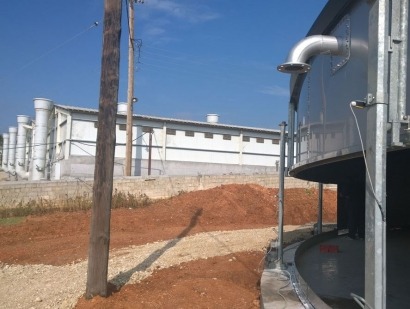
But the company isn't done yet -- it already has another four plants in the works with its distribution partner Tetoros Machinery, S.A.
The order pipeline contains two 500-kW plants, one 300-kW plant, one 250-kW plant and a 250-kW-CHP project.
One of the 500-kW plants is located in Ptolemaida in the region of West Macedonia. The scope comprises a digester with a capacity of 4,438 m³, several mixers and pumps for three existing slurry stores, a macerator and a 500-kW CHP plant. Cattle manure and abattoir waste will be used as substrates.
The project location is a region that is considered the Greek energy centre. No less than 70 percent of the Greek power is generated in this province, though still primarily from brown coal. Nevertheless, the biogas plant has the potential for becoming something like a multiplier of renewable energies in a centre of conventional power generation.
The plant, which is operated by an entrepreneur who runs his own slaughterhouse, is situated in the immediate vicinity of ignite mining areas and coal power plants. This contrast is symbolic of the change that the energy sector is undergoing in this EU member state.
Three quarters of the Greek power production still come from coal, oil and gas. Meanwhile, the Greek Ministry of Environment, Energy and Climate Change is pursuing a change, which, however, has slowed down a bit due to the economic situation. Nevertheless, Greek‘s commitment to provide about 20 percent of the gross energy consumption from regenerative sources by 2020 within the scope of the 20-20-20 goals of the EU is still valid.
In this context, biomass plants account for a share of 350 MW.
For this purpose, there is plenty of input material for biogas plants: A lot of agricultural waste in Greece remains unused. As in Ptolemaida, livestock husbandry takes place at an industrial scale throughout the country.
For additional information:

